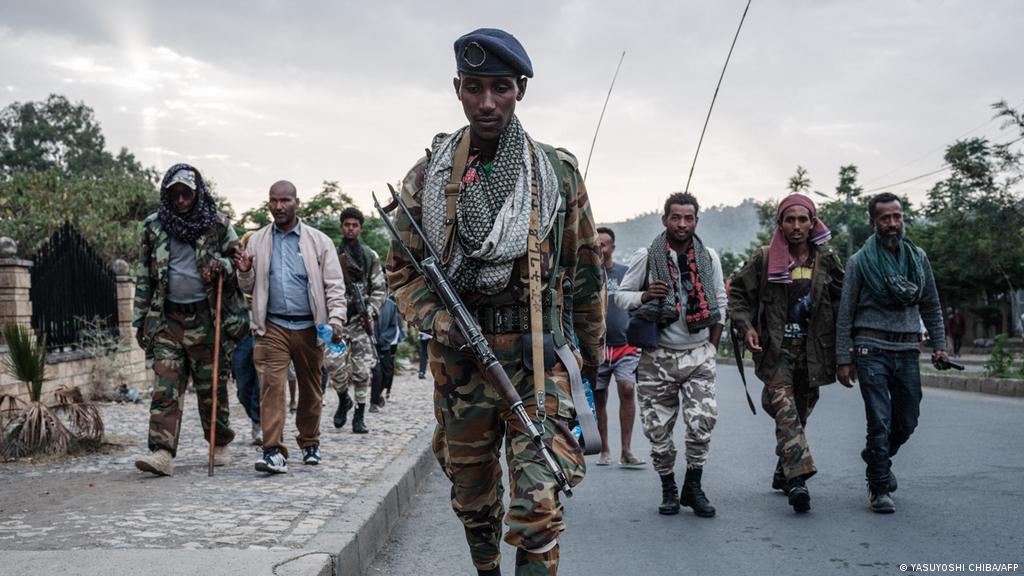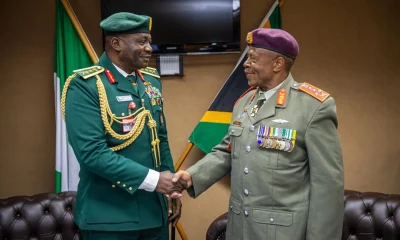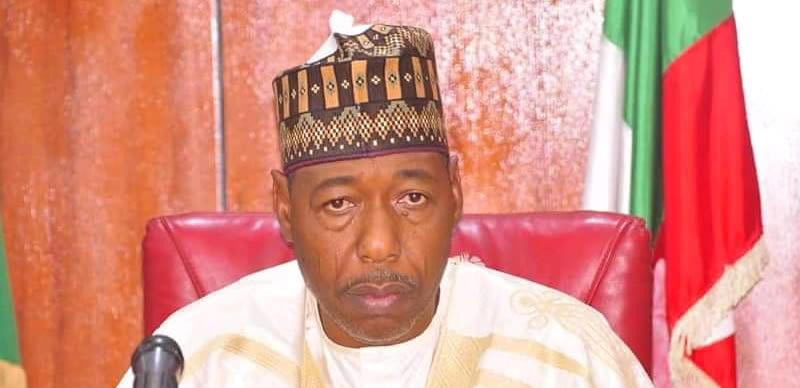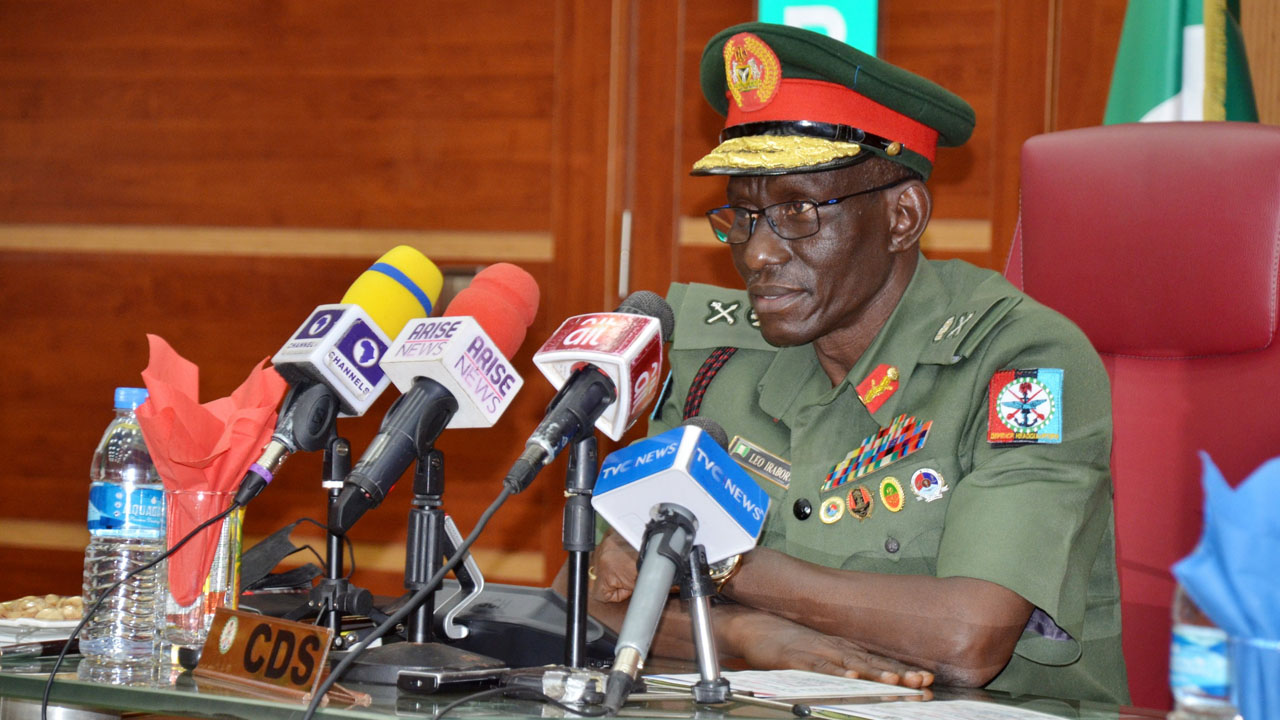Africa
As many as 320 dead in Ethiopia gun attack, witnesses suggest

The suspected death toll in an attack by gunmen in Ethiopia’s western Oromia region has risen, with new witness testimony suggesting that between 260 and 320 civilians were killed on Saturday.
Reports of the massacre surfaced on Sunday, as survivors described one of the deadliest such incidents for several years in Ethiopia.
The country’s prime minister, Abiy Ahmed, has condemned what he described as “horrific acts” in Oromia, but has not given any details of the violence. “Attacks on innocent civilians and destruction of livelihoods by illegal and irregular forces is unacceptable,”
Abiy said on Twitter on Monday, pledging “zero tolerance for horrific acts … by elements whose main objective is to terrorise communities.” Oromia, home to Ethiopia’s largest ethnic group, the Oromo, as well as people from other communities, has experienced unrest for many years, rooted in grievances about political marginalisation and neglect by the central government. Abiy is an Oromo, the first to be in charge of Ethiopia’s government, but some Oromo believe he has betrayed the community’s interests.
Two residents who described the attack on Saturday said the victims were ethnic Amharas, a minority in the region. There was no indication that the attack was directly linked to a conflict in the northern region of Tigray, which began in November 2020 and has killed thousands and displaced millions. The attack occurred in the Gimbi district of western Wollega zone in the western part of Oromia. One resident gave a figure of 260 dead, the other said 320.
The residents declined to give their names because of fears for their safety. “So far we have buried 260 people, which I took part in collecting the bodies and burying the bodies. We just buried them in a farm. We buried 50 to 60 bodies in single graves,” said one resident. He said he had survived by hiding in a ditch, but had lost four siblings and three cousins in the attack.
The other resident said the attackers were ethnic Oromos from a group called the Oromo Liberation Army (OLA). “It was a massacre of Amharas,” he said, adding that he had survived by hiding in a forest and that he had heard the attackers speaking in the Oromo language On Sunday, one witness said the local Amhara community was desperately seeking to be relocated “before another round of mass killings happen”, adding that ethnic Amharas who settled in the area about 30 years ago in resettlement programmes were being “killed like chickens”.
In a statement, the Oromia regional government blamed the Oromo Liberation Army, saying the rebels had attacked “after being unable to resist the operations launched by [federal] security forces”.
The OLA is an outlawed splinter group of the Oromo Liberation Front, a formerly banned opposition group that returned from exile after Abiy took office in 2018. The group formed an alliance last year with the Tigray People’s Liberation Front (TPLF), which has been fighting the federal government in the northern region. There was no suggestion of TPLF involvement in Saturday’s attack in Gimbi.
In recent months a new government offensive has forced the OLA to withdraw from some areas where it previously had significant influence. The massacre follows a number of counterattacks by the group last week.
An OLA spokesperson, Odaa Tarbii, denied the allegations. “The attack you are referring to was committed by the regime’s military and local militia as they retreated from their camp in Gimbi following our recent offensive,” he said in a message to the Associated Press.
“They escaped to an area called Tole, where they attacked the local population and destroyed their property as retaliation for their perceived support for the OLA. Our fighters had not even reached that area when the attacks took place.”
Ethiopia is experiencing widespread ethnic tensions in several regions, most of them over historical grievances and political tensions. The Amhara people, the second-largest ethnic group among Ethiopia’s more than 110 million population, have been targeted frequently in regions like Oromia.
Will Davison, an expert on Ethiopia with the International Crisis Group, s
aid that the situation in Oromia was deteriorating.
“The problems have political roots and there is no sign that these are being addressed. So for now that means increasingly intense violence by both sides,” Davison said
Africa
When the Gatekeeper Fumbles: JAMB’s Error and the Future of Our Youth

When the Gatekeeper Fumbles: JAMB’s Error and the Future of Our Youth
By Matthew Eloyi
It is not every day that a public official publicly sheds tears. And so, when the Registrar of the Joint Admissions and Matriculation Board (JAMB), Professor Ishaq Oloyede, broke down while admitting to errors in the conduct of the 2025 Unified Tertiary Matriculation Examination (UTME), it was a deeply emotional moment. But make no mistake: while the tears may have reflected remorse, they cannot wash away the consequences of what is, quite frankly, a systemic failure.
Let us be clear — JAMB is not merely an examination body. It is a gatekeeper to higher education in Nigeria. It is the bridge between dreams and their realisation for millions of young Nigerians. To fumble that responsibility is not a technical error; it is a breach of trust with life-altering consequences.
With nearly 380,000 candidates now required to retake the exam due to technical glitches and irregularities, one cannot help but ask: How did we get here? And more importantly, why does this keep happening?
For years, JAMB has marketed its transition to computer-based testing as a step toward modernisation. Yet each year seems to expose new cracks in its implementation — from faulty computer systems and power outages to incomplete biometric verification and poorly configured questions. These are not unforeseeable anomalies. They are predictable outcomes of poor planning, lack of oversight, and inadequate investment in infrastructure.
Imagine the psychological toll on the students, many of whom studied day and night, only to be met with malfunctioning systems and flawed questions. Some walked out of examination halls in tears, their confidence shattered, their futures placed in limbo. For those in remote or under-resourced areas, the technical errors are compounded by infrastructural and economic disadvantages. What we are witnessing is not just an exam failure; it is an institutional failure that amplifies inequality.
JAMB’s decision to allow affected candidates a resit is necessary, but it is insufficient. What about those who may never realize they were victims of the glitch? What about those whose faith in the process has been irreparably broken?
Professor Oloyede’s tears may have been sincere, but what Nigerian students need now is not emotion — it is accountability. Heads must roll, systems must be overhauled, and the entire structure must be audited. We cannot allow a body that plays such a pivotal role in shaping the nation’s intellectual future to operate with such recklessness.
The UTME is a rite of passage for Nigerian students; it should not become a roulette of misfortune. Until JAMB can guarantee a glitch-free, fair, and standardised assessment, its credibility will remain on shaky ground.
In the end, our children deserve better. They deserve an education system that works; not one that breaks down and apologises after the damage is done.
Africa
ECOWAS Confirms Burkina Faso, Mali, Niger’s Exit, Keeps Doors Open for Return

The Economic Community of West African States (ECOWAS) has confirmed that the withdrawal of Burkina Faso, Mali, and Niger from the regional bloc takes effect from January 29, 2025.
ECOWAS spokesperson Joel Ahofodji, in a statement on Wednesday, said the decision aligns with the ECOWAS authority’s resolution and reflects the spirit of regional solidarity and the interests of the people.
Despite their exit, Ahofodji emphasized that the bloc remains open to the return of the three Sahel nations whenever they choose.
“All relevant authorities within and outside ECOWAS Member States should take note of this development,” he said.
To minimize disruptions, ECOWAS urged the continued recognition of national passports and identity cards bearing the ECOWAS logo held by citizens of Burkina Faso, Mali, and Niger until further notice.
Additionally, the commission called for the continued application of the ECOWAS Trade Liberalisation Scheme (ETLS) and investment policies for goods and services from the departing nations. It also stressed that their citizens should retain the right to visa-free movement, residence, and establishment under existing ECOWAS protocols.
Furthermore, ECOWAS requested full support and cooperation for its officials from the three countries as they continue their assignments.
“These arrangements will be in place until the full determination of the modalities of our future engagement with the three countries by the ECOWAS Authority of Heads of State and Government,” Ahofodji stated.
He revealed that ECOWAS has set up a structure to facilitate discussions on these modalities, ensuring a smooth transition.
“This message is necessary to avoid confusion and disruption in the lives and businesses of our people during this transition period,” he added.
The News Agency of Nigeria (NAN) reports that Burkina Faso, Mali, and Niger initially announced their intention to leave ECOWAS on January 29, 2024, in accordance with the bloc’s protocol, which allows for a 12-month notice period. In December 2024, ECOWAS officially acknowledged their right to exit but reiterated its willingness to welcome them back in the future.
Africa
Customs hands over illicit drugs worth N117.59m to NDLEA

The Nigeria Customs Service (NCS), Ogun Area 1 Command, has handed over illicit drugs worth N117.59 million to the National Drug Law Enforcement Agency (NDLEA).
The Comptroller of the command, Mr James Ojo, disclosed this during the handing over of the drugs to Mr Olusegun Adeyeye, the Commander of NDLEA, Idiroko Special Area Command, in Abeokuta, Ogun, on Friday.
Ojo said the customs handed over the seized cannabis and tramadol tablets to the Idiroko Special Command for further investigation in line with the standard operating procedures and inter-agency collaboration.
He said the illicit drugs were seized in various strategic locations between January and November 21, 2024, in Ogun State.
He added that the illicit drugs were abandoned at various locations, including the Abeokuta axis, the Agbawo/Igankoto area of Yewa North Local Government Area, and Imeko Afton axis.
Ojo said that the seizure of the cannabis sativa and tramaling tablets, another brand of tramadol, was made possible through credible intelligence and strategic operations of the customs personnel.
“The successful interception of these dangerous substances would not have been possible without the robust collaboration and support from our intelligence units, local informants and sister agencies.
“These landmark operations are testament to the unwavering dedication of the NCS to safeguard the health and well-being of our citizens and uphold the rule of law,” he said.
He said the seizures comprised 403 sacks and 6,504 parcels, weighing 7,217.7 kg and 362 packs of tramaling tablets of 225mg each, with a total Duty Paid Value of N117,587,405,00.
He described the height of illicit drugs smuggling in the recent time as worrisome.
This, he said, underscores the severity of drug trafficking within the borders.
“Between Oct. 13 and Nov. 12 alone, operatives intercepted a total of 1,373 parcels of cannabis sativa, weighing 1,337kg and 362 packs of tramaling tablets of 225mg each,” he said.
Ojo said the seizures had disrupted the supply chain of illicit drugs, thereby mitigating the risks those substances posed to the youth, families and communities.
He lauded the synergy between its command, security agencies and other stakeholders that led to the remarkable achievements.
Ojo also commended the Comptroller General of NCS for creating an enabling environment for the command to achieve the success.
Responding, Adeyeye, applauded the customs for achieving the feat.
Adeyeye pledged to continue to collaborate with the customs to fight against illicit trade and drug trafficking in the state.
-

 Headlines4 years ago
Headlines4 years agoFacebook, Instagram Temporarily Allow Posts on Ukraine War Calling for Violence Against Invading Russians or Putin’s Death
-

 Headlines4 years ago
Headlines4 years agoNigeria, Other West African Countries Facing Worst Food Crisis in 10 Years, Aid Groups Say
-

 Foreign4 years ago
Foreign4 years agoNew York Consulate installs machines for 10-year passport
-

 News1 year ago
News1 year agoZero Trust Architecture in a Remote World: Securing the New Normal
-

 Entertainment3 years ago
Entertainment3 years agoPhyna emerges winner of Big Brother Naija Season 7
-

 Headlines2 years ago
Headlines2 years agoNigeria Customs modernisation project to check extortion of traders
-

 Entertainment2 years ago
Entertainment2 years agoMovie download platform, Netnaija, announces closure
-

 Economy2 years ago
Economy2 years agoWe generated N30.2 bn revenue in three months – Kano NCS Comptroller















